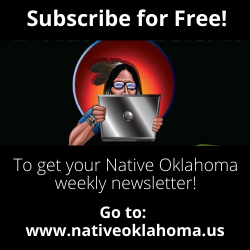

Lawmakers reject gaming compacts for two Oklahoma tribal nations
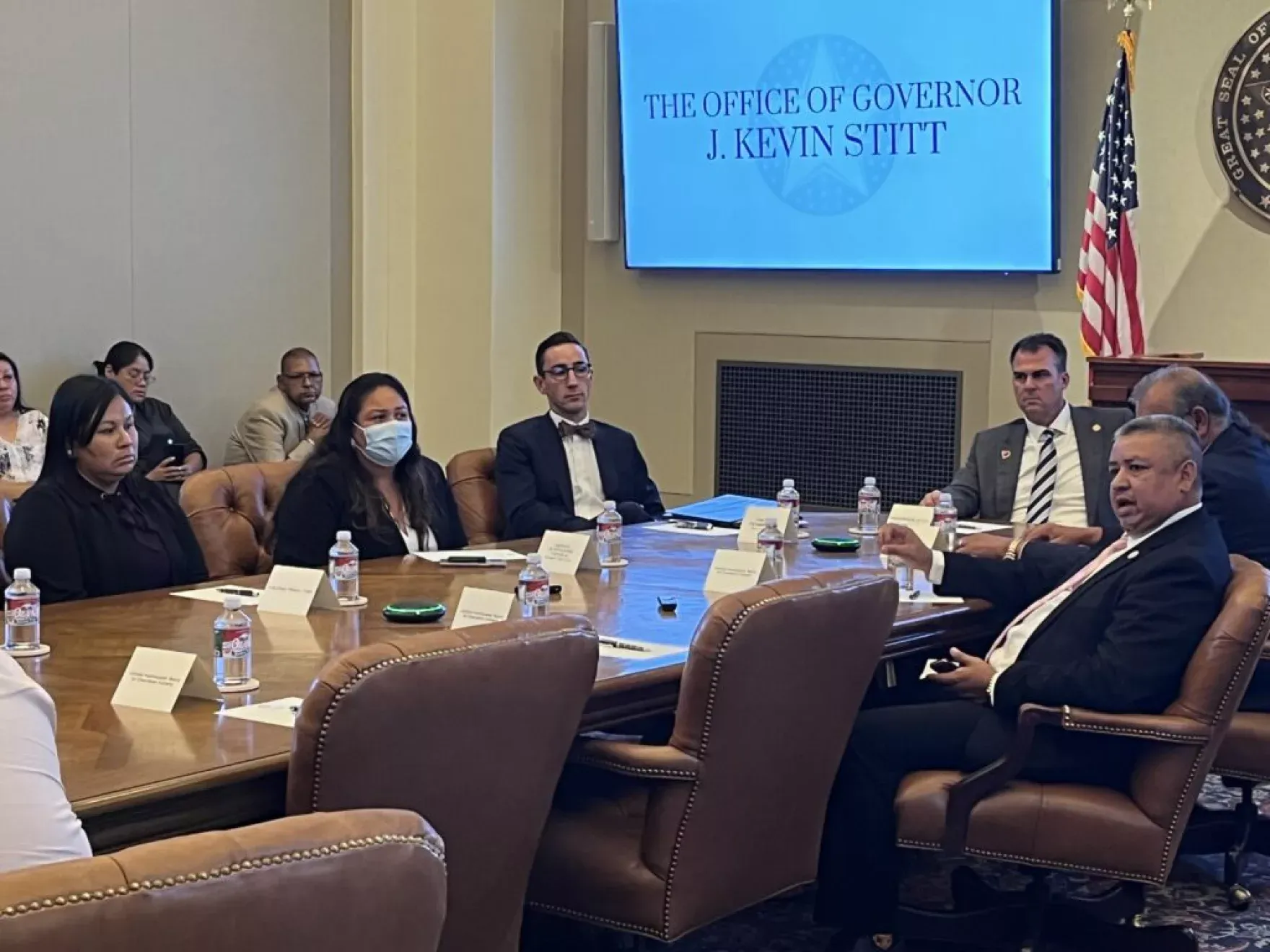
By Janelle Stecklein, Oklahoma Voice
Saying there were “significant fatal flaws,” Oklahoma lawmakers on Wednesday unanimously rejected a pair of compacts that would have allowed two tribes to offer gaming outside of their traditional boundaries.
Leaders with the United Keetoowah Band of Cherokee Indians and the Kialegee Tribal Town said after the vote that they were disappointed lawmakers did not give them a chance to speak during the hour-long hearing. They wanted to tell lawmakers how members of their small and economically disadvantaged tribes would benefit from building new casinos in eastern Oklahoma County and in Guthrie.
“Today’s defeat, it hurt,” said Joe Bunch, chief of the United Keetoowah Band of Cherokee Indians.
But supporters said if the tribes prevail in an ongoing federal lawsuit, they could still move forward with both casinos despite the committee’s vote. Both compacts have already received the necessary federal approval from the U.S. Department of the Interior but were invalidated by the Oklahoma Supreme Court.
Supporters said receiving approval from the Legislature’s 10-member Joint Committee on State-Tribal Relations would have helped end a federal lawsuit in Washington D.C. filed by other Oklahoma tribes who are challenging the compacts.
The joint committee is designed to serve as a legislative check on executive powers by reviewing proposed intergovernmental compacts, including those negotiated by the Governor’s Office. The joint committee typically approves compacts before they’re submitted to the Department of the Interior.
But members of the committee instead voted to reject both as tribal members sat by silently and watched.
Members of the committee expressed concerns that allowing the tribes to build outside their boundaries could set an unwanted precedent moving forward. They also worried about increasing the number of casinos in the state.
Legal advice from the state attorney general also weighed on lawmakers’ minds.
In an Oct. 23 letter to sent committee members, Attorney General Gentner Drummond said “proper respect for the law compels the conclusion that the Joint Committee lacks the authority to make valid that which the Oklahoma Supreme Court earlier declared to be invalid.”
Stitt’s office contended Drummond’s interpretation was incorrect.
Still, as he moved to reject them, Sen. Greg McCortney, R-Ada, said there were “significant fatal flaws” in the compact’s construction regarding the lands granted. He said his opinion won’t change.
Majority Floor Leader Jon Echols, R-Oklahoma City, said he’ll always continue to defend tribes’ ability to offer gaming on their lands. But his Oklahoma County constituents don’t want more casinos.
“I have extreme concerns with carte blanche expansion into Oklahoma County,” Echols said, adding that he is “very nervous.”
The agreements, first signed in 2020, came as Stitt feuded with leaders of other federally recognized tribes over the exclusivity fee rates that the state receives in exchange for allowing them the sole right to operate casinos.
The state’s compact with the United Keetoowah Band of Cherokee Indians would allow the tribe to build a casino in Logan County, roughly 150 miles away from their Tahlequah headquarters. Kialegee Tribal Town’s casino would have been about 80 miles away from their Wetumka headquarters.
Jeff Wacoche, United Keetoowah Band of Cherokee Indians assistant chief, said the tribe already obtained support from Guthrie officials and had been pressing forward with opening a casino there.
“This compact is, or was, a win-win for the state of Oklahoma and the UKB,” he said. “This would benefit all communities.”
Stitt said after the vote that there are already 130 casinos in Oklahoma. He questioned why those two tribes would be barred from operating casinos. He said the state would have received increased gaming revenue, and both compacts would have been best for all 4 million Oklahomans.
Gina Powell, Kialegee Tribal Town second warrior, said the compacts would have benefited their tribal members.
“We are kind of disappointed that we weren’t able to speak at that table and give our side of the story,” she said.
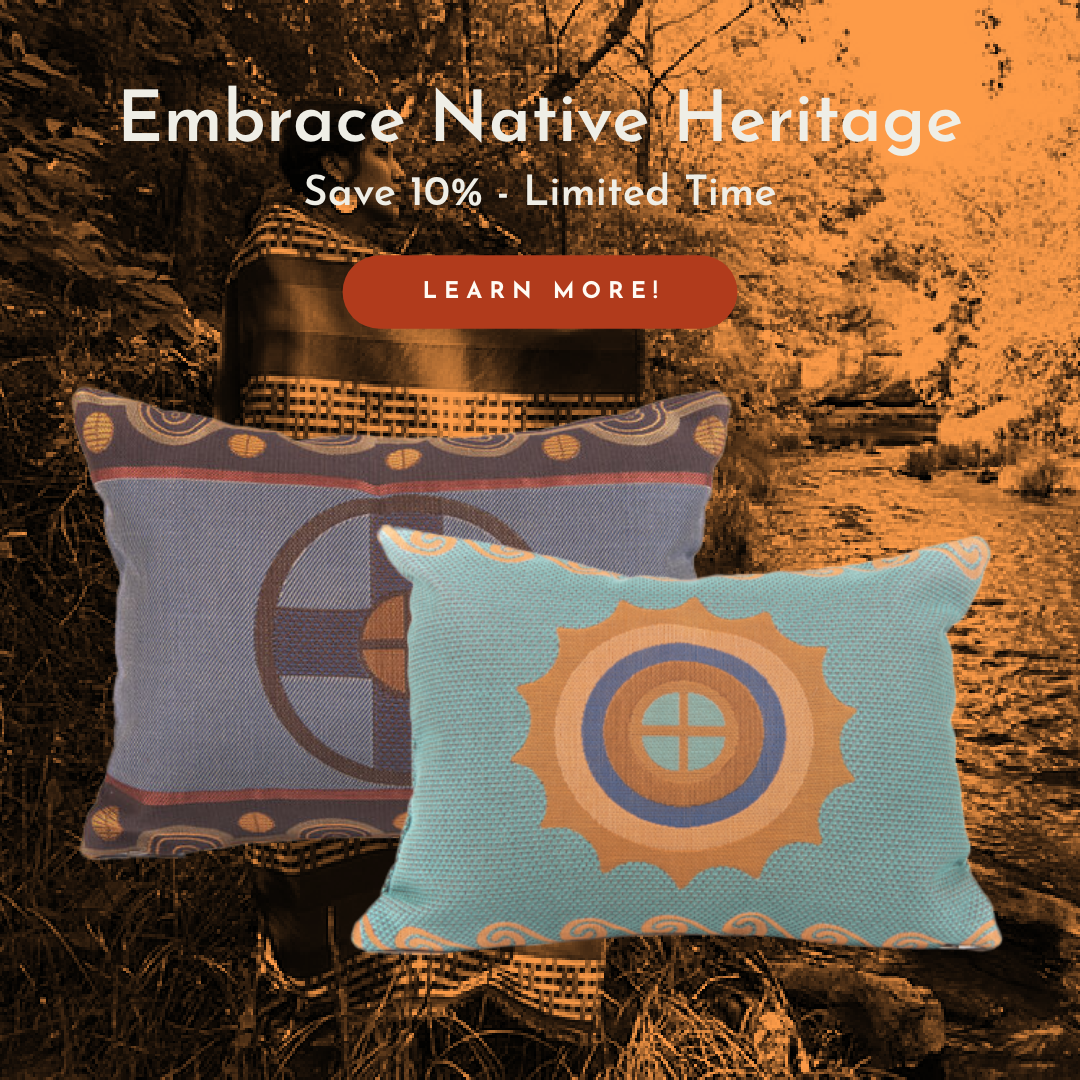
Native American Heritage Month is a Month Dedicated to Our Nation’s First Inhabitants
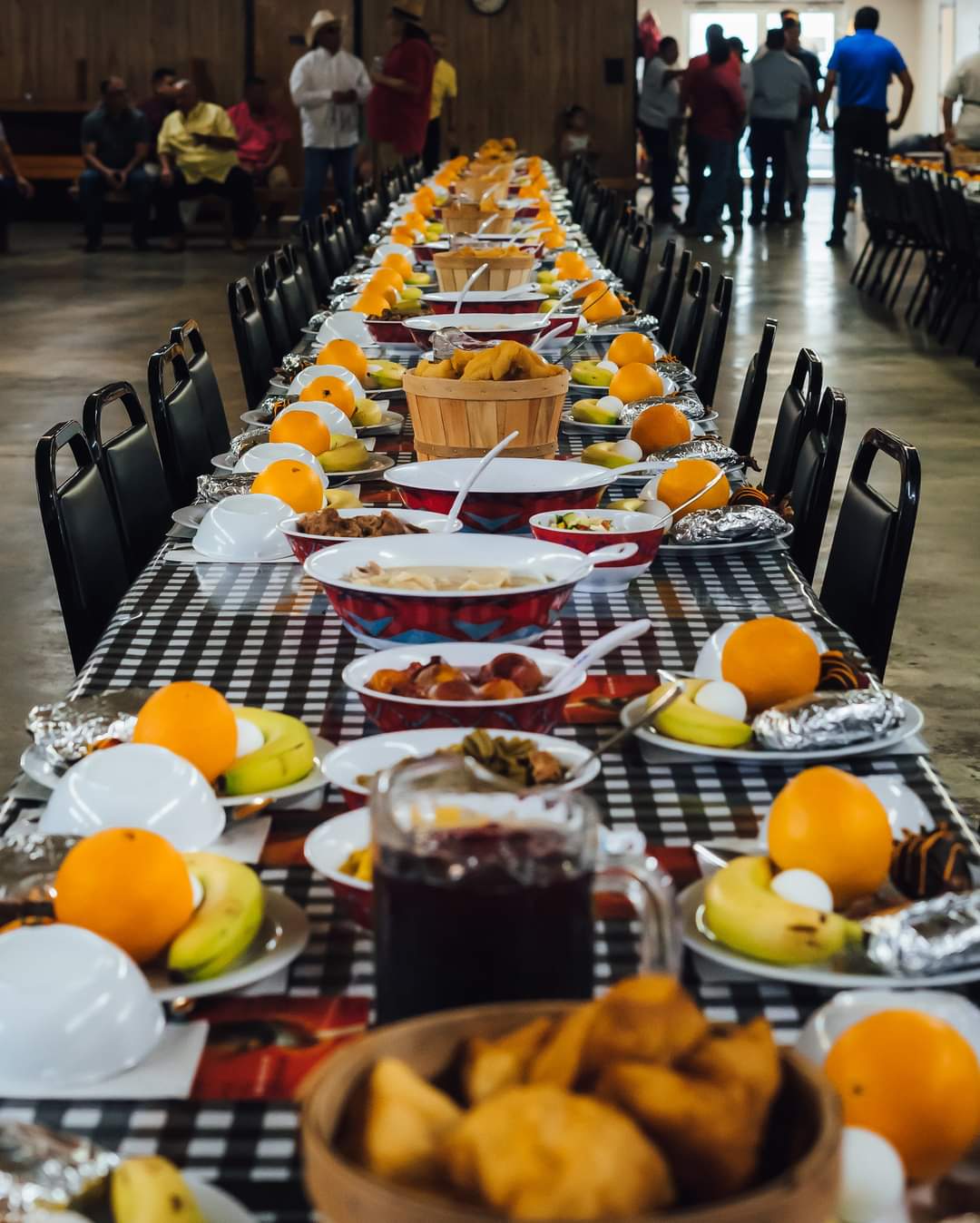
Native American Heritage Month is a time to celebrate our nation’s first inhabitants. The month of November each year is dedicated to honoring all Native Americans, Alaska Natives, Native Hawaiians and affiliated Island communities. It’s a month to remember and educate ourselves on the vast history of American Indian tribes and give regard to their unique and diverse cultures and traditions, and many contributions to the world today.
Native Americans represent some of America’s most diverse and distinctive cultural groups, with rich traditions, languages and stories that are passed down within each tribe. Through much historical hardship, Native Americans have persisted in preserving their unique cultures, traditions and practices more than most colonized groups.
Today, there are 14 states with more than 100,000 American Indian or Alaskan Native residents, and 39 tribal nations headquartered in Oklahoma. Despite heedless attempts to demolish their cultures and break up their communities, Native Americans retained much of their heritage and managed to emerge from their hardships with dignity and pride, and re-attain power in the world today.
With a culture celebrated through words, Native American Heritage Month is a particularly special time for Native and non-Natives alike to learn the history and values shared within Native tribes. Oral traditions pass down sacred Indian knowledge, so the best way to recognize Native Heritage Month is by celebrating the traditions, languages and stories that have been passed down by mouth. The practice of storytelling has ensured their rich histories and contributions continue to thrive with each passing generation.
Native Americans have survived so much hardship, yet more than many other cultural groups, they’ve held their cultures and traditions. Learn the history, back to the Indian Removal Act of 1830, which forcibly relocated Indians to Oklahoma, to the Indian Appropriations Acts, creating the reservation system, where Indians were forced to move to and live on reservations.
Throughout this time period and into the 20th century, Indian boarding schools were founded to eliminate traditional Native American ways of life and replace them with mainstream American culture. Unspeakable crimes were committed upon Indian families, where children were taken by missionaries and put through harsh schooling intended to break them of their Native ways. Learn more about the tragedies surrounding these schools in the documentary Chilocco: A Native American Boarding School Documentary. See a viewing of the documentary at the Del City Library at 2 p.m. on Nov. 5.
Despite the hardships faced, it’s important to pay homage to the ways in which tribal citizens have worked to overcome these challenges. Indian language played a crucial role in WWII, where the US government recruited hundreds of Natives from more than twenty tribes to use their Indigenous languages to send secret, coded messages enemies could never break. See Choctaw Code Talkers documentary, among others, to learn more.
In modern times, efforts have been made to reclaim Native rights. The Indian Civil Rights Act 1968 became a federal law that recognized the rights and citizenship of members of Native American groups. Finally, Native American Heritage Month was signed into law in 1990, dedicated to honoring Native American culture throughout November. Since then, American Indians have been part of a renaissance of governmental successes. Throughout the 21st century, Indian nations have taken remarkable actions in rebuilding their communities, from justice to health care, community development, education and most certainly building a repertoire in the arts and pop culture.
Native American cinema and filmmakers have become widely famed in recent years, with the rise of movies like Killers of the Flower Moon and Prey, and TV series like Reservation Dogs. A new string of Native actors and filmmakers like Oklahoma’s own Sterlin Harjo have taken to the big screen and brought much acclaim to Native American practices, stories and styles in the modern mainstream.
You can see much Native influence in modern home design and fashion, in prints, beadwork and clothing. Indigenous art, basketry and pottery remains popular in design, though much Native art and clothing holds other significance, meant to perform a service, provide a means of worship, avert evil spirits, honor births, deaths and ancestors, or be used in various rituals.
Dress wear and accessories, though fashionable nonetheless, are highly symbolic for Native peoples. Jingle dresses and other clothing items and accessories are carefully adorned for ceremonies, powwows, dances and other rituals, and vary greatly across tribes. The ceremonies and rituals practiced by each tribe and individual families are sacred and representative of values and community. Aside from powwows and dances, sports represent community rituals of many indigenous tribes as well, like field hockey, target games, lacrosse and more.
Take time to recognize Natives in America this month at one of these and other events spanning throughout November in Oklahoma:
AARP OK Native American Elders Honors Event at the First Americans Museum in OKC on Nov. 1 will honor 48 Native American Elders from Oklahoma’s 39 tribal nations.
Will Rogers Day in Claremore, Nov. 1-4, is a festival celebrating “The Cherokee Kid” which will feature a parade, film festival, 5K run and more.
Choctaw Nation Annual Powwow on Nov. 3-5 in Durant is one of the nation’s largest powwows, a three-day event that will draw dancers from all over the country and feature a powwow competition.
SkasdiCon is in Tahlequah on Nov. 4 is an annual comic convention featuring special guests, a family-friendly cosplay competition, Native pop-culture panels, screenings and First Americans artists.
AAIA Annual Reparation Conference is on Nov. 7-9 in Shawnee.
Native Sound Summit at First Americans Museum in OKC on Nov. 11, where artists, musicians, curators and industry professionals will convene for panels and performances.
Native American Flute Circle in Norman on Nov. 12 will offer a free flute workshop.
Native Americans Through Film on Nov. 30 is a free program at Belle Isle Library in OKC that will showcase a curated collection of films celebrating the histories, cultures and contributions of First Americans.
Stomp Dance Demonstrations twice a day, 11 a.m. and 2 p.m., Tuesdays-Saturdays at the Chickasaw Cultural Center in Sulphur.
'It's Corn!' art exhibit at Philbrook Museum running through Dec. 31 looks at how corn has influenced art, pottery, jewelry, paintings and more.
Tocabe moves to Indigenize the ready-made meal business
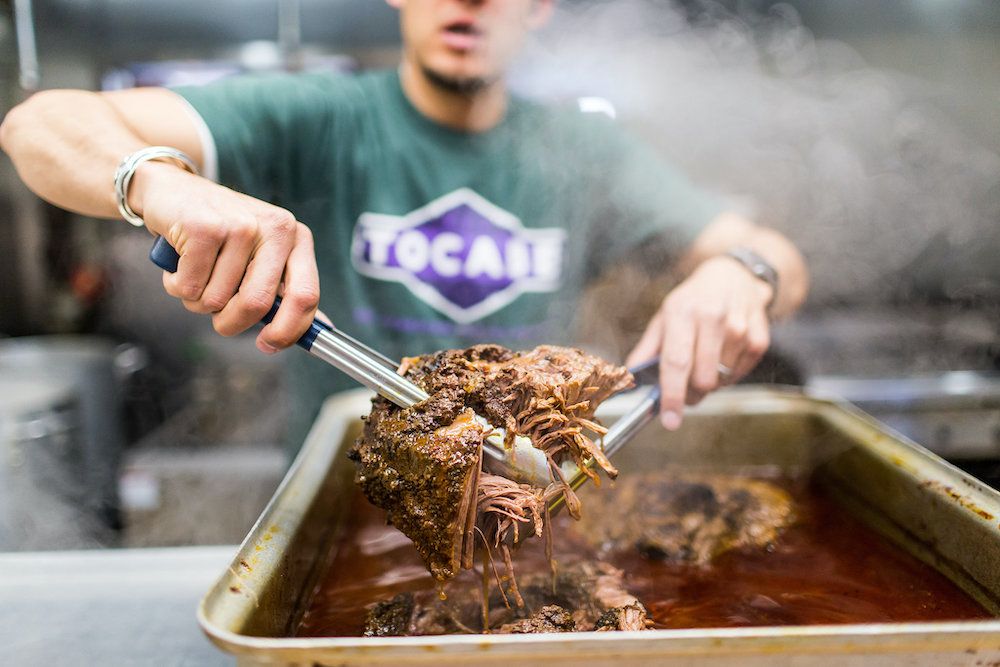
Ben Jacobs wants to revamp the culinary landscape by incorporating Indigenous cuisine and traditional ingredients into the fast-growing ready-made meals industry.
Jacobs, a member of the Osage Nation and co-founder of Tocabe Indigenous Marketplace, believes the move can help expand his Denver-based business and, by extension, the market for his suppliers’ Indigenous ingredients.
The company introduced Harvest Meals, a line of ready-made, direct-to-consumer meals, this month. Priced between $11 and $16, the ready-made meals — with names like Bison Posu Bowl, Wild Rice Jambalaya, and Blue Corn Mush — can be shipped throughout the lower 48 states and include a medley of ingredients sourced from local and Indigenous partners. Among these ingredients are wheat berries, prickly pear cactus and tepary beans, a legume that’s been grown in the southwestern U.S. since pre-Columbian times.
“It was really an extension of all the work we were doing coming out of COVID with our marketplace launch,” Jacobs said. “Other than giving people accessibility to ingredients, we wanted to provide access to quick, convenient, all Indigenous-based meals. We know what we do well, and one of those things is sourcing and distributing food, but also providing fully prepared food.”
Harvest Meals pushes them further into the ready-made meals industry, which has seen significant growth in the wake of COVID-19, per research published by industry analyst Grand View Research.
In 2021, the market stood at roughly $144 billion, with a projected compound annual growth rate of 5.3% between 2022 and 2030. The report attributes the growth initially to COVID and then a demand for better ingredients and speedier delivery that has pushed businesses like Tocabe to enter the market.
The market makes sense for Tocabe, which can leverage its access to traditional foods, including many that are tailor-made for the pre-made meal business.
“Many of our traditional ingredients have stability in terms of shelf life: dried corn, dried beans, wild rice,” Jacobs said. “But sometimes it's difficult to prepare a full meal with all of those ingredients, so we wanted to make it simple for people to have a healthy meal in a few minutes.”

The Harvest Meals initiative not only marks a new venture for Tocabe Marketplace, but also opens doors for their partners, many of which are tribal or Native-owned enterprises specializing in traditional food products. Among these partners is Jayme Murray, the general manager of the Cheyenne River Sioux Bison Authority Corporation in Ziebach County, S.D.
Murray told Tribal Business News that Harvest Meals has significantly increased demand for his bison products, offering an additional channel for distributing food products from his 2,000-head herd.
“It's really helped to boost our sales, and get new projects going,” Murray said. The new business from Tocabe, along with a new project with the USDA, spurred an expansion project to build another processing facility to meet growing demand, Murray said.
Building those partnerships has become a core part of Tocabe’s business model, Jacobs said. The company uses bison from multiple sources, as well as cornmeal from the Ute Mountain Ute Tribe and wild rice from the Red Lake Nation.
While initially Tocabe’s goal was to provide dry goods through their enterprises, those partnerships have grown to include suppliers like Sakari Farms, an Inupiaq-owned tribal farm based in Bend, Ore. that provides sauces for some of Tocabe’s products. And in August, Tocabe and Red Lake’s economic development arm also came together to buy a stake in an Alaska-based seafood business.
“It's about always continuing to work with different producers who have a broader reach with their products,” Jacobs said. “It’s about providing Indigenous food items to as many people as we can.”
Jacobs, alongside co-founder Matt Chandra, launched Tocabe Indigenous Marketplace in June 2021. The company began as a pair of restaurants, one of which was transformed into a production warehouse to support the launch of Harvest Meals. The company’s dry goods market has also been expanded to include deli meats and butcher services. Between the market, restaurant, and prep warehouse, the company employs about 38 people, Jacobs said.
The development of Harvest Meals took two years as the company sorted through logistics and built partnerships, Jacobs said. Today, the business operates on three fronts: their Denver restaurant, an online store specializing in dry goods, and the new ready-made meals.
“It's really (been about) building on that supply chain and developing that Native chain on a larger scale, so we had all the ingredients on hand to develop the meals, and there was a lot of internal logistics figuring out how to make and distribute the food,” Jacobs said. “Now our partners have three avenues for each of the products we sell for them. We can provide that product through these multiple avenues to broaden their reach."

AICCO members win BIG at annual REI Oklahoma event
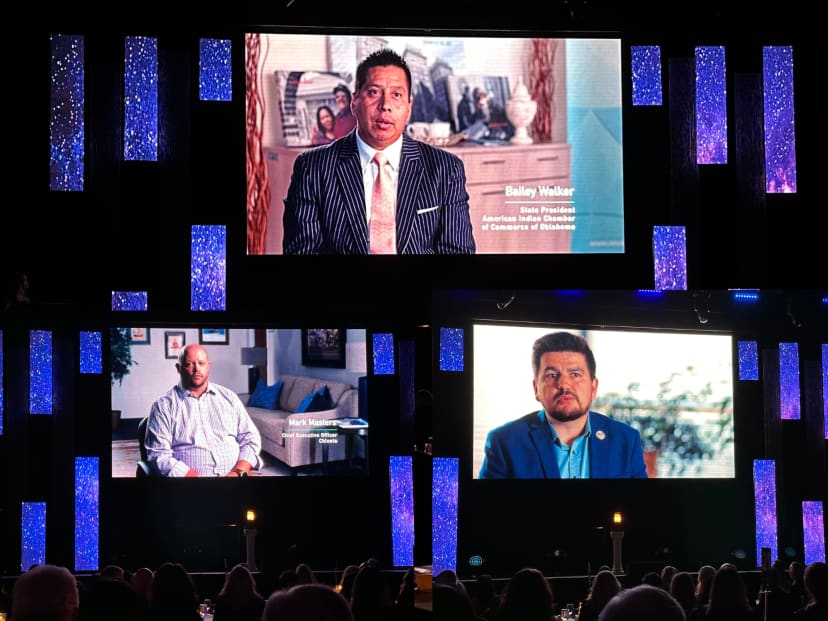
Native Commerce News is sponsored by the American Indian Chamber of Commerce of Oklahoma (AICCO), dedicated to expanding Indian Country commerce across the globe.
Written By Rachael Schuit
(SHAWNEE, Okla.) It was an enchanting night of celebration, honoring a years’ worth of accomplishments, collaboration, and investment during REI Oklahoma’s Dream BIG Oklahoma Awards on October 10.
REI Oklahoma helps people from all income and education levels start businesses, buy homes, and contribute to their communities and the economic development in the state of Oklahoma through free training and other resources.
Businesses, individuals, and organizations that made a significant impact on economic development in Oklahoma were recognized at the annual Dream BIG event, held this year at the Grand Casino Resort, including three members of the American Indian Chamber of Commerce of Oklahoma (AICCO).
AICCO State Board President Bailey Walker was awarded the Minority Business Center Partner of the Year. Walker has served as AICCO’s President since 2018.
“Receiving the Minority Business Center Partner of the Year is not just an accolade; it's a powerful acknowledgment of the resilience, innovation, and potential that Native people bring to the economic landscape,” Bailey said. “It's a recognition of our determination to not only survive but to thrive, showcasing the immense strength of our heritage and the bright promise of our future."
AICCO is a nonprofit organization that serves as a business advocacy and support network for American Indian-owned businesses and tribal enterprises in the state of Oklahoma. Its mission is to foster economic development, entrepreneurship, and growth within the Native business community.
Chloeta, one of more than 200 registered AICCO Native Businesses, was awarded the REI Minority Business Center Client of the Year award at this year’s Dream BIG Oklahoma event. Based in Oklahoma City, Chloeta assists government and federal clients with services relating to aviation, healthcare, and emergency management.
Susan Dean, Minority Business Center Program Manager at REI Oklahoma, personally works with Walker and Chloeta, and also serves on the AICCO State Board.
“I was overjoyed to participate in Dream BIG, where REI invests in our partnerships like AICCO that have positive impacts on our clients,” Dean said. “And to know that we have been doing this in Indian Country for 42 years.”
Mvskoke Fund, an AICCO Tribal Member, was awarded the REI Women’s Business Center Partner of the year, following numerous collaborative events within their combined networks.
With focuses on economic and community development through training and lending, Mvskoke Fund plays a crucial role in addressing the business needs of not only Muscogee (Creek) Nation citizens but any tribal members living on the reservation.
Organizers said the money raised at Dream Big Oklahoma will go toward REI programs that help Oklahomans start businesses or purchase homes.
“REI Oklahoma is not only building our state’s economy, but we are also helping our fellow Oklahomans build a better tomorrow,” REI Oklahoma president and CEO Scott Dewald said. “We are here and ready to serve those in rural and urban communities who have a vision of creating economic security for themselves and their families. On behalf of our board, staff and sponsors, we congratulate all of our award winners.”
REI Oklahoma announced they will be sharing the videos presented at Dream BIG Oklahoma celebrating this year’s winners on social media over the next several weeks.
